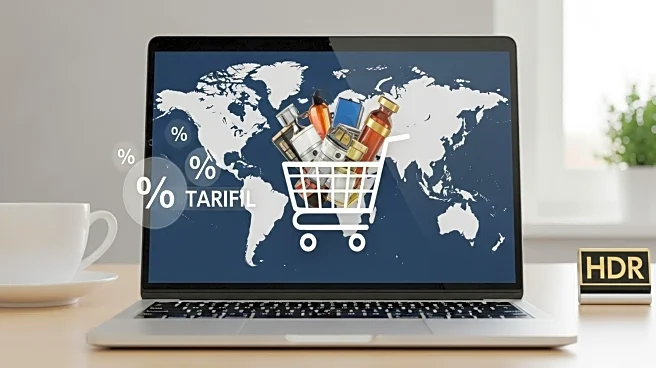What's Happening?
California consumers are experiencing surprise costs on online imports due to President Trump's reversal of the de minimis tariff policy. Previously, goods valued under $800 could enter the U.S. duty-free, but the policy change now subjects these items to tariffs. This has led to unexpected charges for consumers, as seen in cases like Carlos Soto, who faced additional fees on a soccer jersey purchase. Delivery companies like UPS and FedEx are working to inform customers about the new tariff regime, but confusion and complaints persist.
Why It's Important?
The policy change affects a significant number of consumers who rely on international online shopping, potentially altering purchasing behaviors. The additional costs could impact consumer spending and the retail industry, particularly for small businesses and individuals who frequently import goods. The situation highlights the broader implications of trade policies on everyday consumers and the challenges of adapting to regulatory changes. The response from consumers and businesses may influence future policy discussions and trade negotiations.
Beyond the Headlines
The tariff policy reversal reflects broader economic and political strategies aimed at protecting domestic industries. However, the impact on consumers raises questions about the balance between protectionism and free trade. The situation underscores the need for clear communication and support for consumers navigating complex trade regulations. As the policy continues to affect consumers, there may be calls for adjustments or exemptions to mitigate the financial burden on individuals and small businesses.










